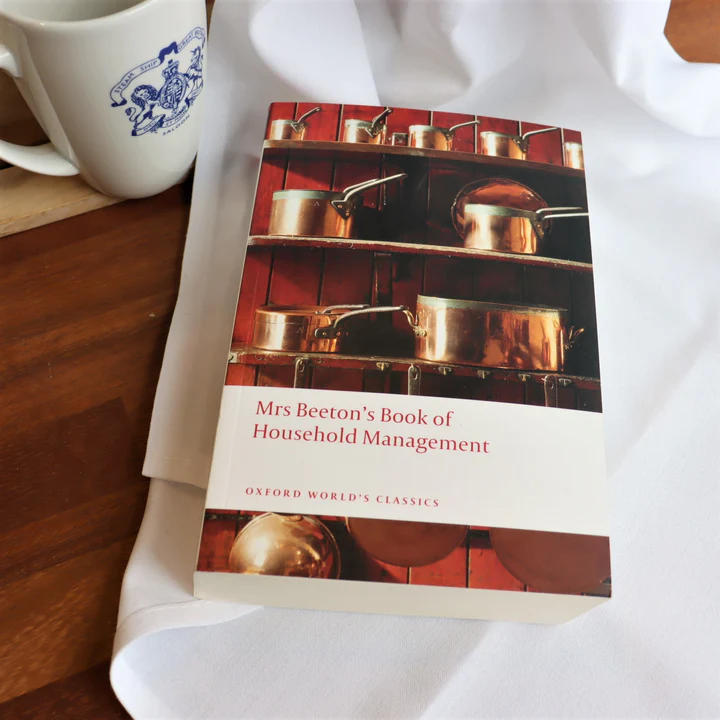“Pancakes are never good unless eaten almost immediately”.
Amongst the many great books on maritime history and Brunel held within the David MacGregor Library, we have a collection of books that shed light on Victorian life. One of the best selling books of its time is that of Mrs. Beeton’s Book of Household Management. Published in 1861 the book had sold nearly two million copies by 1868 alone. It is a guide on how an aspirational Victorian woman should care for her home and her husband. Some of the recipes are very different than today (such as explaining that pasta should be boiled for an hour and forty-five minutes), but many are very similar, including the recipe for pancakes.
To Make Pancakes
Eggs, flour, milk; to every egg allow 1oz of flour about 1 gill (half a pint) of milk, ½ tablespoon of salt.
Ascertain that the eggs are fresh; break each one separately in a cup; whisk them well, put them into a basin with flour, salt, and a few drops of milk, and beat the whole to a perfectly smooth batter; then add by degrees the remainder of the milk. The proportion of this latter ingredient must be regulated by the size of the eggs; but the batter, when ready for frying, should be of the consistency of thick cream.
Place a small frying pan in the fire to get hot; let it be delicately clean, or the pancakes will stick, and, when quite hot, put into it a small piece of butter, allowing about ½oz to each pancake. When it is melted, pour in the batter, about half a teacup full to a pan 4 inches in diameter, and dry it for about 4 minutes, or until it is nicely brown on one side. By only pouring in a small quantity of batter, and so making the pancakes thin, the necessity of turning (an operation rather difficult to unskilful cooks) is obviated.
When the pancake is done, sprinkle over it some pounded sugar, roll it up in the pan, and take it out with a large slice, and place it on a dish before the fire. Proceed in this manner until sufficient are cooked for a dish; then send them quickly to table, and continue to send in further quantity, as pancakes are never good unless eaten almost immediately they come from the frying pan.
The batter may be flavoured with a little grated lemon rind, or the pancakes may have preserve rolled in them instead of sugar. Send sifted sugar and a cut lemon to table with them. To render the pancakes very light, the yolks and whites of the eggs should be beaten desperately, and the whites added the last thing to the batter before frying.
Time – from 4 to 5 minutes for a pancake that does not require turning; from 6 to 8 minutes for a thicker one.
Average cost for three persons 6d
SEASONABLE at any time but specially served on shrove Tuesday.
Mrs. Beeton’s Book of Household Management
For those that are feeling a little more decadent and perhaps have a few more shillings to spare, Mrs. Beeton offers a recipe for a more luxurious pancake.
Richer Pancakes
Ingredients: 6 eggs, 1 pint of cream, ¼ lb of sugar loaf. 1 glass of sherry, ½ teaspoonful of grated nutmeg. Flour
Ascertain that the eggs are extremely fresh, beat them well, strain and mix with them the cream, pounded sugar, wine, nutmeg, and as much flour as will make the batter nearly as thick as that for ordinary pancakes. Make the frying pan hot, wipe it clean with a clean cloth, pour in sufficient batter to make a thin pancake, and fry it for about 5 minutes.
Average cost with cream at 1s. Per pint, 2s 3D




